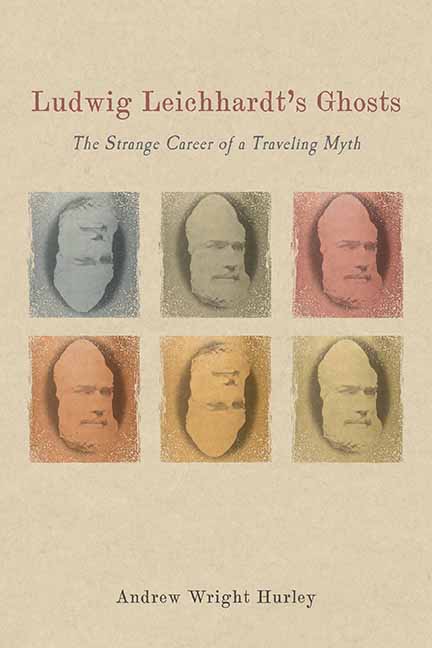Book contents
- Frontmatter
- Dedication
- Contents
- List of Illustrations
- Acknowledgments
- Introduction
- Part I Colonial Entanglements
- 1 Discovering, Mourning, and Honoring Leichhardt between Australia and German-Speaking Europe, 1848–1858
- 2 Ferdinand Mueller, the Ladies Committee, and German-Australian Seekers of Leichhardt
- 3 Taking Leichhardt Home to Germany with Georg Neumayer
- 4 Uneasily Approaching the Centenary
- Part II Colonial Memories
- 5 An Interwar Interregnum, or Finding Leichhardt as a “Friend of the Aborigine”?
- 6 Nazi Leichhardt
- 7 Leichhardt the Cold Warrior
- 8 Leichhardt Explodes, with No End in Sight (including a concluding passage “The Ghost of a Chance”)
- Notes
- Works Cited
- Index
5 - An Interwar Interregnum, or Finding Leichhardt as a “Friend of the Aborigine”?
Published online by Cambridge University Press: 20 August 2020
- Frontmatter
- Dedication
- Contents
- List of Illustrations
- Acknowledgments
- Introduction
- Part I Colonial Entanglements
- 1 Discovering, Mourning, and Honoring Leichhardt between Australia and German-Speaking Europe, 1848–1858
- 2 Ferdinand Mueller, the Ladies Committee, and German-Australian Seekers of Leichhardt
- 3 Taking Leichhardt Home to Germany with Georg Neumayer
- 4 Uneasily Approaching the Centenary
- Part II Colonial Memories
- 5 An Interwar Interregnum, or Finding Leichhardt as a “Friend of the Aborigine”?
- 6 Nazi Leichhardt
- 7 Leichhardt the Cold Warrior
- 8 Leichhardt Explodes, with No End in Sight (including a concluding passage “The Ghost of a Chance”)
- Notes
- Works Cited
- Index
Summary
IN MARCH 1919, just a few months after the Armistice was signed, Dr. Alfred Kötz put the finishing touches on a manuscript that had been occupying him for some time. The young German ethnologist gave his book the title Mimboka: Eine Erzählung aus dem Leben der Austral- Neger (Mimboka: A Story from the Life of the Australian Negroes [sic]). This was, as far as I can tell, the first book-length fictionalization of Leichhardt and his expeditions, since the Lemurian novels of the nineties were really about the searchers for him. It was remarkable for a number of reasons. It was born in the teeth of a devastating war that had consequences that really ought to have sidelined any interest in Leichhardt, especially given that Australia had fought against Germany, and had even succeeded it as colonial “master” in northeastern New Guinea. It evinced a strong attention to Indigenous Australian culture, and thereby restored Aborigines, albeit problematically, to a record from which they had been erased in the last decades. In doing so, Mimboka established motifs that would populate later fictionalizations of the Leichhardt tale, especially Patrick White's Voss (1957). At the same time, another anthropologist, the second generation German-Australian Herbert Basedow, was in the field in Central Australia, chasing down an aged but seemingly deathless Leichhardt rumor that had been taxing people since the days of the Ladies Committee. Like Kötz’s, Basedow's Leichhardtianism was united with an interest in Indigenous culture. Indeed, in 1919 his attention was drawn away from Leichhardt to conducting a medical relief mission to Indigenous people. By the early twentieth century, then, Indigenous people firmly reentered the Leichhardt story, at least in some of its Germanic iterations, but the implications were rather ambiguous.
German Anthropology and Australia
That German-speaking anthropologists could become absorbed by Leichhardt was no coincidence. If German scientists such as Leichhardt and his “younger brothers” had been active in colonial Australia, then another important interface in the transnational Australian-German entanglement had been missionaries, with their sideline in ethnography. German missionization in Australia was partly a result of the active role played by the Moravian Church, an evangelical protestant group from Saxony, within the British Empire. However, the Moravians were not the only German group active in Australia.
- Type
- Chapter
- Information
- Ludwig Leichhardt's GhostsThe Strange Career of a Traveling Myth, pp. 111 - 132Publisher: Boydell & BrewerPrint publication year: 2018



